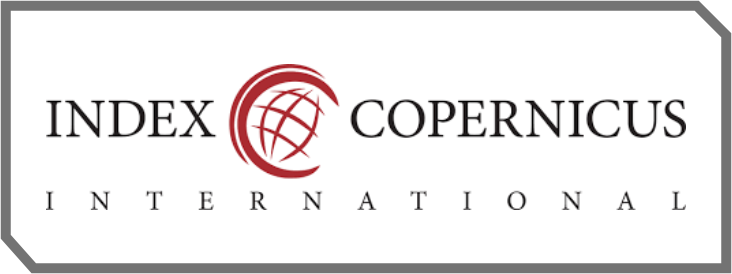Development of E-Modules Based on Google Workspace For Education in Improving Teachers' Digital Literacy Competencies
DOI:
https://doi.org/10.59525/gej.v3i2.815Keywords:
E-Modules; Google Workspace For Education Applications; Digital LiteracyAbstract
Digital literacy competence of teachers refers to their ability to understand, use, and leverage digital technology for teaching and daily work activities. It includes the skills to locate, evaluate, create, and communicate information using various digital tools. This study aims to develop a training e-module on using Google Workspace for Education to strengthen teachers' digital literacy competence. The research employed a Research and Development (R&D) approach and was conducted at SD PGRI Serui. The product development followed the ADDIE framework: Analysis, Design, Development, Implementation, and Evaluation. The research subjects were the teachers at SD PGRI Serui. The outcome of the study is a training e-module titled “Google Workspace for Education Application.” Expert reviews showed the module was rated very good, with average scores of 98.64%, 84.20%, and 80.00%. The module was declared valid and suitable for field testing. In individual and small group trials, the module received high practicality ratings of 85.00% and 89.00%. A large group trial revealed positive participant responses to 31 statements covering five key module criteria. Eighteen statements were rated “strongly agree” and thirteen “agree.” Thus, the module is considered good, engaging, and suitable for use in face-to-face or independent learning.
References
Abed, E. K. (2019). Electronic learning and its benefits in education. Eurasia Journal of Mathematics, Science and Technology Education, 15(3), em1672.
Abkarin, N. A. (2021). The analysis of teachers’ professional competence in utilizing information and communication technology. ELT Forum: Journal of English Language Teaching, 10(2), 125–135.
Cikusin, Y., & Mistar, J. (2024). Challenges and Strategies in Adopting Google Workspace for Education: Perspectives from Educational Leaders in Indonesia. Available at SSRN 4758623.
Dilnoza, M., Maftuna, S., Guzalkhon, K., Makhliyo, S., & Maftuna, K. (2019). Modular training system as a factor of improving educational process. International Journal of Innovative Technology and Exploring Engineering, 9(1), 3160–3166.
Ilhami, A. H., & Fathoni, T. (2025). Kepemimpinan Visioner Kepala Sekolah Dalam Mewujudkan Pendidikan Berbasis Masa Depan. AL-MIKRAJ Jurnal Studi Islam Dan Humaniora (E-ISSN 2745-4584), 5(2), 611–624.
LEE, S.-Y., & KIM, S.-J. (2020). Analysis of Google’s success factors and direction. Korean Journal of Artificial Intelligence, 8(2), 11–16.
Loderer, K., Pekrun, R., & Lester, J. C. (2020). Beyond cold technology: A systematic review and meta-analysis on emotions in technology-based learning environments. Learning and Instruction, 70, 101162.
Ly, P., Bani, M., Hariana, V., & Meok, P. (2024). Development of E-Modules for Elementary Students. Pegem Journal of Education and Instruction, 14(3), 300–310.
Marquardt, M. J., & Kearsley, G. (2024). Technology-based learning: Maximizing human performance and corporate success. CRC Press.
Octaberlina, L. R., & Muslimin, A. I. (2020). EFL students perspective towards online learning barriers and alternatives using Moodle/Google Classroom during COVID-19 pandemic. International Journal of Higher Education, 9(6), 1–9.
Prabowo, S., Nisaa’k, Z. K., Khoiruddin, R., & Fathoni, T. (2025). Strategi Menghadapi Peserta Didik Remaja Melalui Pendekatan Empatik Dalam Bimbingan dan Konseling. AL-MIKRAJ Jurnal Studi Islam Dan Humaniora (E-ISSN 2745-4584), 5(2), 458–467.
Reding, D. F., & Eaton, J. (2020). Science and Technology Trends 2020-2040: Exploring the S and T Edge.
Rohaini, A., & Fathoni, T. (2025). Strategi Kepemimpinan Kepala Sekolah dalam Manajemen Konflik di Lingkungan Pendidikan. AL-MIKRAJ Jurnal Studi Islam Dan Humaniora (E-ISSN 2745-4584), 5(2), 450–457.
Spiteri, M., & Chang Rundgren, S.-N. (2020). Literature review on the factors affecting primary teachers’ use of digital technology. Technology, Knowledge and Learning, 25(1), 115–128.
Downloads
Published
How to Cite
Issue
Section
License
Copyright (c) 2025 Global Education Journal

This work is licensed under a Creative Commons Attribution-ShareAlike 4.0 International License.











